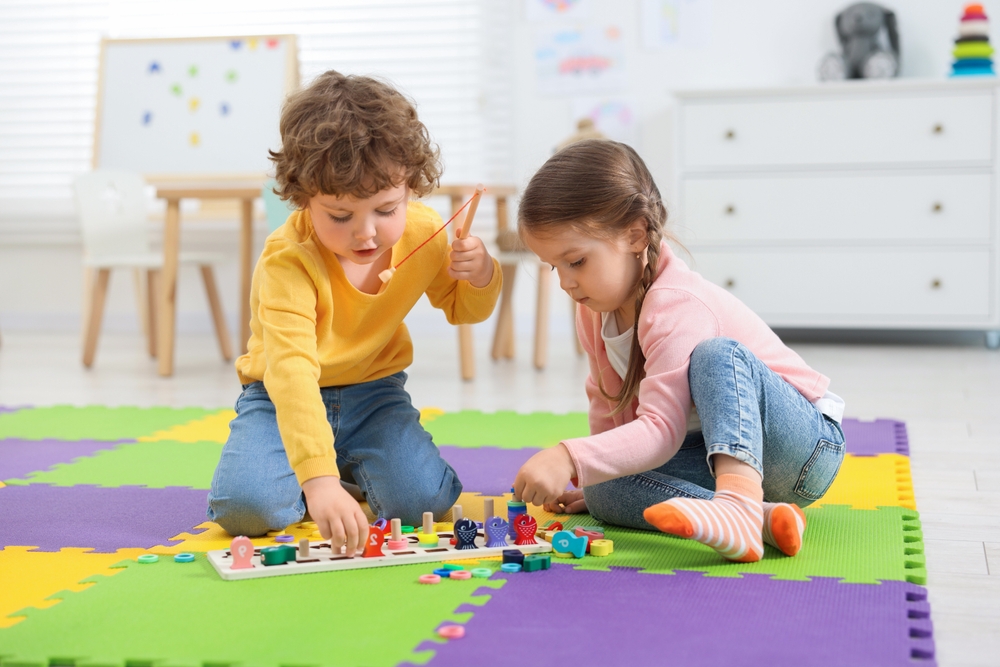Play isn’t just fun—it’s a fundamental part of how young children learn and grow. The power of play-based learning helps children build essential skills in a way that feels natural and engaging. Research shows that play is critical for cognitive, social, emotional, and physical development, laying the foundation for lifelong learning.
What is Play-Based Learning?
Play-based learning is an educational approach that encourages children to explore, discover, and learn through play. Unlike traditional instruction, where children passively receive information, this method of learning allows kids to actively engage with their environment, fostering creativity and problem-solving skills. Play supports the development of language, executive functioning, and social skills—key abilities that set children up for success in school and beyond.
The Benefits of Play-Based Learning
1. Cognitive Growth and Problem-Solving Skills
When children engage in open-ended play, such as building with blocks or role-playing in a pretend kitchen, they develop critical thinking and problem-solving abilities. Children who participate in these learning activities show improved cognitive flexibility and higher-order thinking skills compared to those in traditional academic settings.
2. Language and Communication Development
Through play, children naturally expand their vocabulary, learn sentence structures, and develop communication skills. Whether they’re engaging in storytelling, role-playing, or playing with peers, they practice expressing thoughts and emotions. Studies show that children who engage in imaginative play have stronger language development and narrative skills.
3. Social and Emotional Skills
Play helps children learn to share, negotiate, and collaborate with others. When they engage in group play, they develop empathy, patience, and emotional regulation. Social play fosters emotional resilience and helps children navigate friendships and conflicts in healthy ways.
4. Physical Development and Motor Skills
Active play, such as running, climbing, and dancing, supports gross motor skill development, while activities like drawing, stacking blocks, and playing with small objects strengthen fine motor skills. Physical play enhances coordination, balance, and even brain function by supporting neural development.
How I’m Just a Kid Encourages Play-Based Learning
At I’m Just a Kid, we incorporate play-based learning into our daily routines to create a fun, engaging, and supportive environment for every child. Whether it’s sensory play, hands-on science experiments, or dramatic role-play, we ensure that learning is both meaningful and enjoyable.
Play is an essential part of childhood learning. It builds confidence, creativity, and essential life skills that children carry with them into their future education and beyond. By embracing this method of learning, we allow children to develop naturally, joyfully, and in a way that makes learning an adventure.
At I’m Just a Kid, we’re dedicated to providing a nurturing environment where play and learning go hand in hand. Visit us at I’m Just a Kid to learn more about how we support your child’s growth and development through play!
